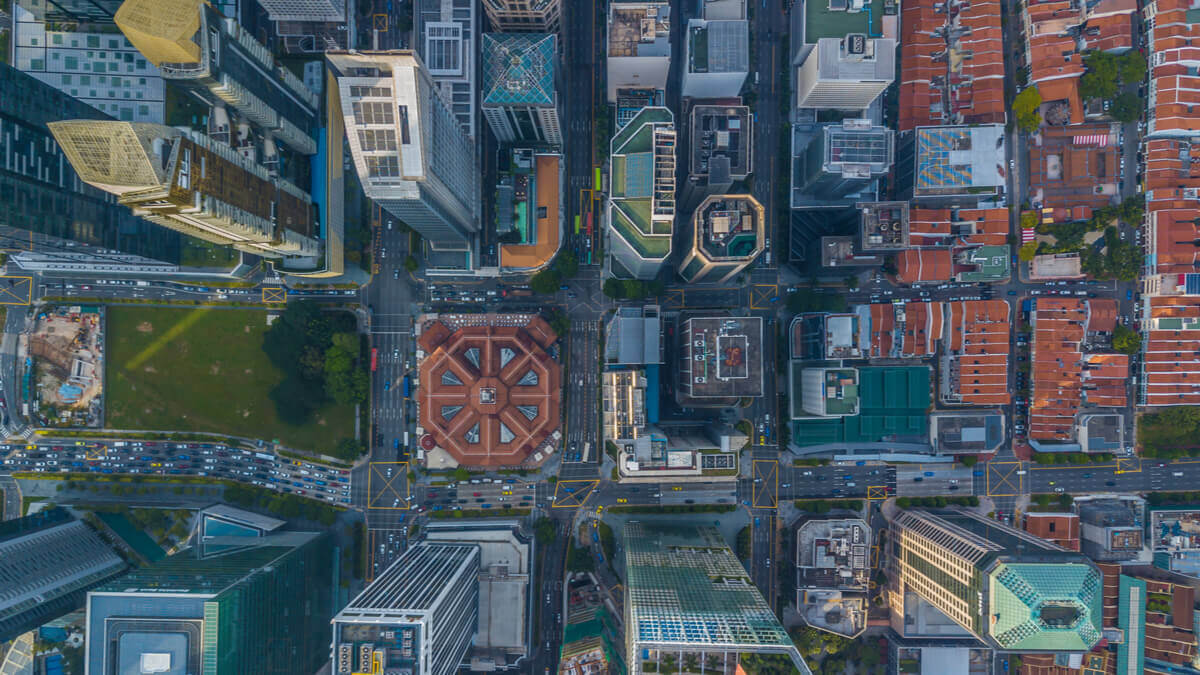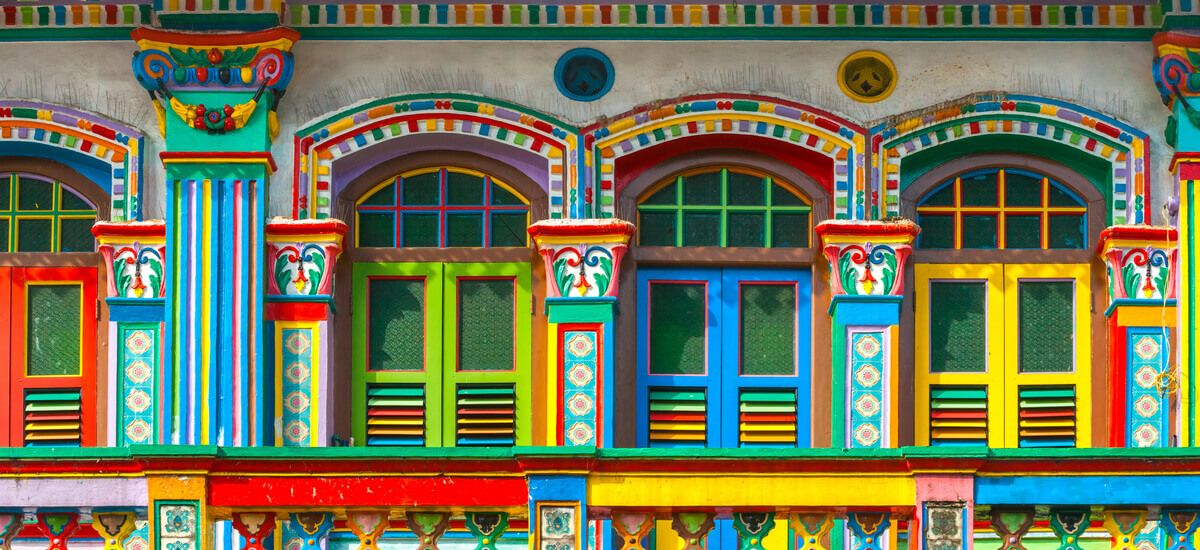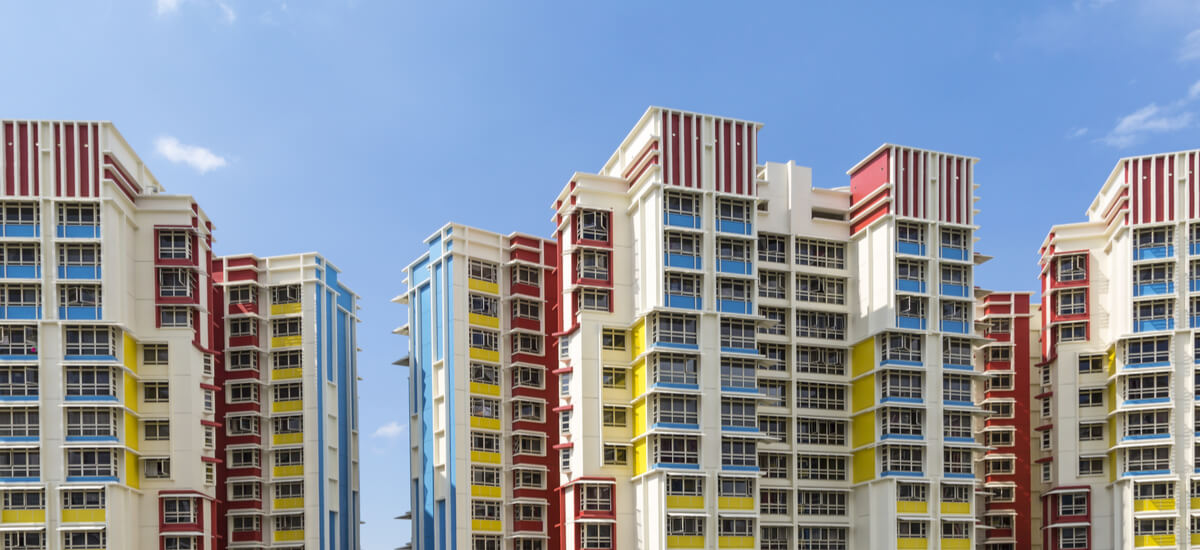How to buy a house in Dubai: US guide
Interested in buying a house in Dubai? Here’s everything you need to know about buying property abroad as an American.

Singapore is Asia’s financial heart, home to many global firms — and therefore many expats. As a developed, global city with a mixed, tolerant and vibrant community — and all the amenities you could possibly need — it’s a fantastic place for a foreigner to settle.
However, this utopia doesn’t come cheap. It’s also among the most expensive places in the world to live. If you’re ready to open your wallet and buy property in Singapore, it’s important to learn all about your options as a foreigner.
Read along for our full guide covering the most important things you need to know before diving into the world of Singapore home ownership.
| 📑 Table of Contents |
|---|
Even though the Singaporean economy faced challenges throughout the Covid-19 pandemic — as did most places — the housing market remains healthy¹.
Due to a high demand, and not so many new properties being built, housing prices in Singapore are steadily increasing.
During the last quarter of 2020 the pricing faced an increase of 2.08% — or 1.67% when adjusted to inflation), and the tendency is for this number to keep rising.
In general terms, Singapore’s stability in the Asian region means it's considered a safe place to invest in property, even if returns aren't huge when compared to other markets.
Yes, foreigners can buy property in Singapore. Though the Residential Property Act of 2005 puts some restrictions in place.
When looking for what kind of property to buy, keep in mind that options for expats are limited. Foreigners can only purchase apartments in buildings of less than six stories — if you wish to live higher up, government approval is needed. As for vacant land, permission from the Singapore Land Authority is required².
On the other hand, there are no restrictions for non-residents to buy a condo.
To make sure you’re purchasing property under the right conditions, it’s crucial to have local expert advice when buying your Singaporean home.
In order to purchase property in Singapore you need to be at least 21 years old³.
Parents wishing to buy a condo, house or apartment for their children can do so in the form of a trust — the child will be the legal owner of the home when he or she turns 21.

Once you find a real estate agent and lawyer that you trust, all you’ll need to do is follow the steps below²:
Step 1. Set the price with the seller and secure a mortgage with a bank if you need it. Your options range between getting a loan from a local bank or getting an overseas property mortgage in the US.
Step 2. Secure the Option to Purchase — the buyer pays a 1% down payment of the purchase price to secure the property for a couple of weeks. The terms of this option will later on become the terms of the actual deed, so it’s recommended that you get a lawyer to draft it for you.
Step 3. Pay the remainder 9% of the down payment to confirm the intention to buy — this is added on top of the Option Fee and must be done within the timeline agreed in the Option to Purchase agreement.
Step 4. The lawyer will formulate the option, confirm the property ownership and that it can be legally sold.
Step 5. The lawyer will then prepare the documents transferring title of the property, which are signed by both buyer and seller.
Step 6. The lawyer will then arrange documents transferring the title of the property, and ensure the sale is registered properly.
Step 7. The purchase is completed, you can now enjoy your new Singapore home! 🎉
Considering the steps above, the upfront cost when purchasing a house in Singapore is usually: 1% option fee + 9% down payment (+ any additional amounts agreed with the seller). The overall procedure to transfer title and register the property takes around 6 days.
If you’re thinking of buying an apartment in Singapore, the price you pay will be influenced significantly by where you want to live. You’ll get more for your money if you’re prepared to have a bit of a commute into the city centre.
All property in Singapore comes at a premium — although you’ll find housing stock at a wide range of sizes and levels of luxury.
Below you can find an example of the average property price per square foot in Singapore:
| Property type | Price range (sqft) |
|---|---|
| Apartment⁴ | 1,300 SGD - 25,000 SGD |
| Condo⁵ | 1,300 SGD - 4,800 SGD |
| Walk-up⁶ | 1,400 SGD - 1,600 SGD |
Note: prices for 1 bedroom apartments or studios. Correct at time of research (checked 12.22.2021).
| Check how much would a square foot cost you in USD using the conversion calculator below |
|---|
If you need a mortgage from a local bank, you can get a loan of up to 80% of the property price in SGD².
| Read further: International mortgage lenders |
|---|
When looking for the total cost of buying a house in Singapore, it’s important to consider all the taxes and fees, as they can add up from 7% - 20% of the purchase prices.
So make sure to note these down when setting your budget — but keep in mind that other taxes and fees might be applicable.
| Fee² | Amount |
|---|---|
| Buyer stamp duty (BSD) |
|
| Additional buyer stamp duty (ABSD) |
|
| Conveyancing fees (legal fees) |
|
| Real estate agent fee |
|
| Exchange rate |
|
Costs covered by seller: seller stamp duty (4% - 16%), conveyancing fee (0.15%) and real estate agent fee (2%).
|
|---|
Save on international payments
After looking at how much it’ll cost you to buy a house in Singapore, you might be wondering how to send money to pay for your overseas property. Wise offers you a quick, safe and transparent solution for sending money to Singapore.
You get the mid-market exchange rate for your payments and see how much it’s charged for the transfer before sending the money from your bank.
With the Wise Multi-currency Account you can also hold, send and spend money in over 50 countries, and receive like a local in 10 different currencies — including SGD.
Create a free Wise account in minutes and save up to 6x compared to your bank.

Finding and buying a house in Singapore can be complicated — especially for expats, as there are restrictions on the way that foreigners can buy both land and property.
To avoid falling foul of scams and pitfalls, you’re strongly recommended to use a local property agent you can trust. Although there will be a fee to pay for this service, they'll help you with avoiding costly mistakes, and might be able to negotiate with the seller better than you can alone.
So, even though you can manage without, it’s more common for home buyers in Singapore — be them native or foreigners — to use an agent.
⚠ Keep in mind that even if you don’t choose a specialist buying agent to help you with your purchase, you’ll have to pay towards the fees levied by the main agent selling the property. Usually this means you’ll pay a fee of 1% of the purchase price, while the seller will pay the rest.
| 🏡 Get started on your research with these realty websites |
|---|
Singapore has a well developed real estate sector, although as a highly urbanised area, there's a pressure on living space in many areas.
You'll have a wide choice of apartments, or flats in built up areas and cities, with houses and villas more readily available in newer developments in the suburbs, and, for example, in some exclusive beachside developments.
It’s important to remember that, as a foreigner, you have the following options:
| No need for approval |
|
| Need government approval |
|
| Need Singapore Land Authority approval |
|
It’s a smart idea, though not required by law, to get a survey done on any property you choose before you commit to buying it. Your lawyer can help you find a surveyor who knows the area well.
Buying property is a big and exciting step, but navigating the system in a new country brings new challenges.
When diving into the property market in Singapore, take this guide as your starting point — but don’t forget to go after local help and advice for a hassle-free purchasing process.
| And for all your international money needs, make sure to try Wise and the Wise Multi-currency Account. This way you can send, spend and receive SGD as a local! |
|---|
Sources:
Sources checked on 12.21.2021
*Please see terms of use and product availability for your region or visit Wise fees and pricing for the most up to date pricing and fee information.
This publication is provided for general information purposes and does not constitute legal, tax or other professional advice from Wise Payments Limited or its subsidiaries and its affiliates, and it is not intended as a substitute for obtaining advice from a financial advisor or any other professional.
We make no representations, warranties or guarantees, whether expressed or implied, that the content in the publication is accurate, complete or up to date.

Interested in buying a house in Dubai? Here’s everything you need to know about buying property abroad as an American.

Interested in buying a house in Portugal? Here’s everything you need to know about buying property abroad as an American.

Interested in buying a house in the Philippines? Here’s everything you need to know about buying property abroad as an American.

Interested in buying a house in Japan? Here’s everything you need to know about buying property abroad as an American.

Read on for everything you need to know about getting an international mortgage from HSBC.

Read on for everything you need to know about getting an international mortgage from America Mortgages.